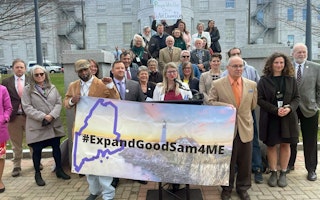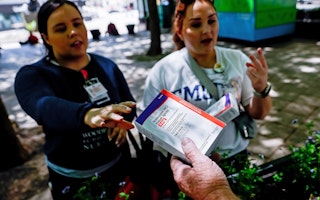Look Who’s Talking about Drug Policy Reform
By Andy Ko
Leadership in reforming American drug policy is emerging from an unusual place—the top.
For years, policymakers have privately acknowledged the insensibility of treating drug use as a crime, while publicly endorsing further escalation of drug war policies. But something is changing.
Within just a few days of each other, and with no apparent connection, three major public figures—the U.S. Attorney General, CNN’s medical correspondent and one-time candidate for U.S. surgeon general, and New York City’s chief financial officer—spoke of the urgent need to address drug policies that drive mass incarceration, worsen preventable health crises, and inflict other avoidable economic and social costs.
Eric Holder, Dr. Sanjay Gupta, and John Liu have broken a longstanding taboo among mainstream elites by questioning the wisdom and fairness of current drug policy, possibly signaling that reforms are finally on the table for honest and thoughtful debate.
- At the American Bar Association’s August 12 annual meeting, Attorney General Eric Holder announced the Obama administration’s proposed criminal justice reforms, including modification of federal charging practices to avoid unfair mandatory minimum sentences in drug prosecutions; greater reliance on state courts, even in cases that could be charged federally; release of certain nonviolent elderly prisoners; and collaboration with Congress to pass bipartisan sentencing reform.
- Just days before Holder’s speech, a CNN Special on marijuana featuring well-known medical commentator Dr. Sanjay Gupta offered a startlingly frank assessment of the science, politics, and pervasive misinformation that surrounds marijuana. Gupta forcefully argued that medical and public health considerations have for many years taken a backseat to political and financial interests. “We have been terribly and systematically misled for nearly 70 years in the United States,” Gupta writes, “and I apologize for my own role in that …. I promise to do my part to help, genuinely and honestly, fill the remaining void in our knowledge.”
- Two days after the Holder speech, New York City Comptroller John Liu, the city’s chief financial officer, released a report proposing regulated access to marijuana in the Big Apple, estimating that the city could save $31 million annually in reduced law enforcement and court costs, and generate more than $400 million in revenue—which he suggests could be used to cut local college tuition in half for city residents. “New York City’s misguided war on marijuana has failed, and its enforcement has damaged far too many lives, especially in minority communities,” Liu said. “It’s time for us to implement a responsible alternative. Regulating marijuana would keep thousands of New Yorkers out of the criminal justice system, offer relief to those suffering from a wide range of painful medical conditions, and make our streets safer by sapping the dangerous underground market that targets our children. As if that weren’t enough, it would also boost our bottom line.”
I honestly do not know what to make of so much high-level talk—all within less than a week—of the need for a fundamental paradigm shift in the way we respond to drugs in America. Is it the beginning of the end for the war on drugs and its role in perpetuating racial, economic, and political inequality? Is it just a chance alignment of three stars who have seen the light? I really don’t know, but I keep returning to parts of Holder’s speech:
As the so-called "war on drugs" enters its fifth decade, we need to ask whether it, and the approaches that comprise it, have been truly effective. … Today, a vicious cycle of poverty, criminality, and incarceration traps too many Americans and weakens too many communities. And many aspects of our criminal justice system may actually exacerbate these problems, rather than alleviate them. … Today—together—we must declare that we will no longer settle for such an unjust and unsustainable status quo. … Instead, we must recommit ourselves—as a country—to tackling the most difficult questions, and the most costly problems, no matter how complex or intractable they may appear.
I agree. And whatever it all means in the end, Holder, Gupta, and Liu have made a good start.
Until June 2014, Andy Ko was campaign manager for the Campaign for a New Drug Policy at the Open Society Foundations.


